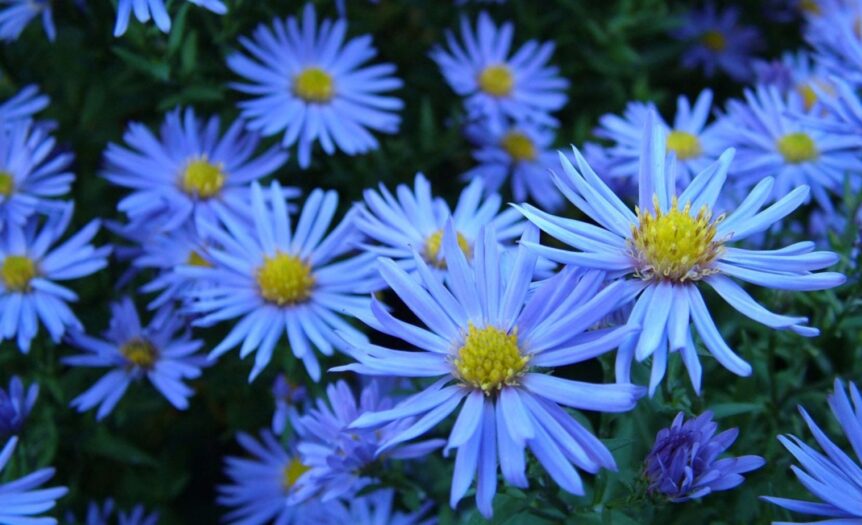Tenting a garden brings many joys. Sitting outdoors in the sun and observing the dance of the butterflies is surely one among them.
But what attracts butterflies to your little patch of land? You’ve guessed it–the beautiful flowers, which provide the much-needed nectar.
Today, we’ll review some of the best additions that attract our beautiful pollinators. With them, your garden will become a little piece of haven for all kinds of butterflies.
Let’s dive in!
What Attracts Butterflies In The First Place?
How do you make your garden a place pollinators prefer? Naturally, you want to create a suitable environment for them to want to hang around.
To do just that, you have to think about creating enough food supply. A butterfly will visit any garden if it offers suitable nectar plants for them to feed on. So, selecting flowers which offer rich nutrients is key.
This entails a well-thought-out plan about what to plant in your garden comes. Choosing flowers, which offer plenty of nectar, will help these pollinators refuel their energy–after a gruelling winter or restock during autumn to prepare for hybernation.
Another way to attract butterflies is to create favourable conditions for them to breed in your garden. Selecting the right plants will aid them to lay eggs there and as a result, you will see much more pollinators during the warmer months.
Keep in mind that there are many species of butterflies. That entails that some will be attracted to certain flowers, while others will prefer something else. So, it helps to do some research first.
Take a look at which species live in your area and study what their preferences are. The outcome would be unbelievable even if you take your time and select just the perfect flowers. Note that the more varied your selection, the higher the number of butterfly species you will have and the more appealing will be your garden.
Let’s have a more detailed look at your top blue flower picks.
1. Butterfly Bush (Buddleja davidii)
For the number one pick, we have the butterfly bush. If you are for diversity, and we talked about it above, this is the best choice.
Its fragrance and honey-like nectar attract plenty of pollinators. Monarchs, swallowtails, painted ladies and others are just a few of the butterfly species which find these flowers irresistable.
In regards to planting, the butterfly bush prefers full sun and well-drained soils. The plant can quickly become a focal point in your garden. All you need to do after is to take a moment and sit and enjoy the sight of the dancing butterflies there.
2. Salvia (Salvia farinacea)
This is a low-maintenance perennial and an overall good option for beginning gardeners. Salvias are generally known for their sky-blue flower spikes. Their addition to your garden will benefit butterflies with their tube-like flowers, which are nutritious for them.
Salvias need plenty of sunlight and well-drained soil, so select their location carefully. Once they mature, they will begin attracting butterflies.
3. Russian Sage (Perovskia atriplicifolia)
To lend the garden a touch of regiment, choose this exact flower. Because butterflies are visual creatures, the Russian Sage will attract them with its airy lavender-blue spikes and silvery foliage. Be sure they will come in bulk to feed once they taste its sweet nectar,
In regard to planting, Russian Sage prefers sunny locations and well-drained soil. Lastly, it can boast it withstands dry periods well and is also deer-resistant.
4. Blue Globe Thistle (Echinops bannaticus)
This is a remarkable and popular perennial, with round spherical flower heads as distinctive features. Butterflies love it for flowering spikes, which offer plenty of nectar. Seasoned butterfly gardeners know that the Blue Globe Thistle likes sunny areas and soil with good drainage.
5. Blue Verbena (Verbena hastata)
This enchanting flower blooms from summer through fall. Its blue flowers, albeit small, are densely packed.

The Blue Verbena gives off an alluring aroma and plenty of nectar. This makes it an ideal selection for butterfly gardens. Unsurprisingly, it thrives in a sunny spot, like the others, with moist, well-drained soil.
6. Blue Mist Shrub (Caryopteris x clandonensis)
This particular plant has aromatic blue flowers. They emit a sweet and pleasant fragrance, which butterflies find irresistible. Being a compact shrub, it can handle dry conditions very well. The Blue Mist prefers full sunlight. Plant it in well-drained soil, too. It blooms in late summer and fall.
7. Blue Plumbago (Plumbago auriculata)
This is a spreading, bushy-like shrub. It has flowering clusters of small blue flowers from spring to fall. The Plumbago offers rich nectar, making it a favourite among butterflies and expert gardeners alike. This plan is pretty much low maintenance and quite a good option if you want to balance your work with more demanding plants. Plant it in full sun and partial shade.
8. Blue Eyed Grass (Sisyrinchium angustifolium)
This perennial is rather small and unique. It has slender grass-like foliage and small with yellow centres. The fragile flowers attract the butterflies with its sweet fragrance and they come to visit and feed on their nectar. Plant Blue Eyed Grass under the full sun to partial shade and soil with good drainage. Lastly, observe the magic it produces in your garden and watch butterflies flutter around it.
9. Blue Delphinium (Delphinium spp.)
Cottage garden enthusiasts will definitely be fond of blue Delphiniums here. Their blooming period is early to mid summer. Butterflies love their beautiful blossoms. Same goes for the abundance of nectar.

All this highlighs the fact that this plant is an excellent choice for butterfly gardens. Plant the Blue Delphinium in full sun and well-drained soil for healthy growth.
10. Bluebell (Campanula spp.)
Bluebell is a pretty perennial that is in blooming from May to June. It has bell-shaped blue flowers. Its nodding flowers are irresistible for butterflies, and they often crawl here to drink nectar. Planted Bluebell in partial to full shade and in moist and well-drained soil can be appreciated as a native woodland plant and also a nectar source for butterflies.
Conclusion
Drawing the line here! Ten gorgeous blue flowers which you can use to cover your entire garden while at the same time attracting hundreds of different butterflies.
If you are creative enough and you take some time to plan and maintain your garden well, you can make sure that these wonderful pollinators will have an amazing time visiting the place.








